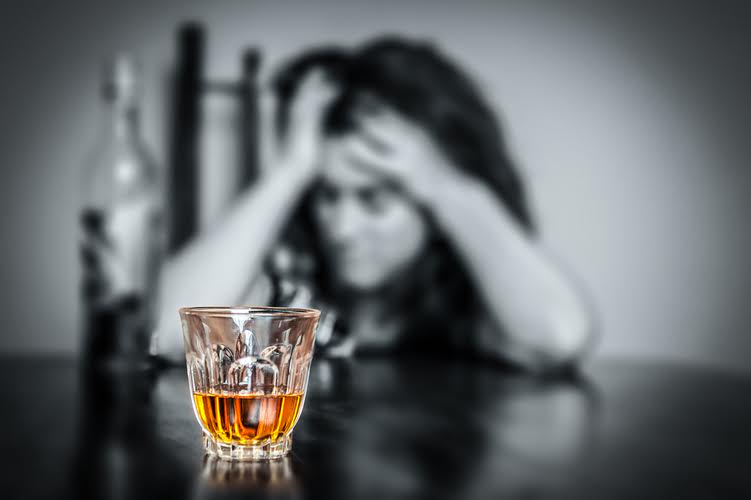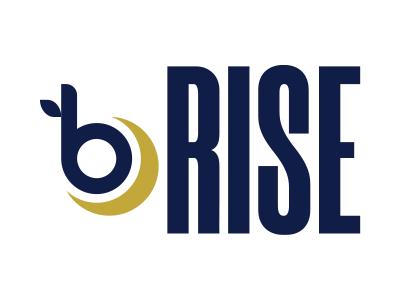According to the National Epidemiologic Survey on Alcohol and Related Conditions, individuals addicted to alcohol were 3.7 times more likely to experience major depression than those considered non-addicts. Many people with depression may self-medicate with alcohol, and although drinking may have a temporary mood-boosting effect, over the long term, there can be severe consequences. Prolonged alcohol abuse, including regular binge-drinking episodes and regular imbibing of more than three drinks per day, can result in major depression, a condition where someone experiences persistent sadness and anxiety. It’s also worth noting a correlation and causation issue here in that substance abuse and diagnosed depression often coexist in many people, which can make it hard to pinpoint where one problem ends and another begins.

Alcohol may be a form of self-medication for people with depression. The “burst” of energy from alcohol can be a welcome relief against some symptoms. For example, alcohol may temporarily reduce anxiety and lower inhibitions.
Gabapentinoids
Yet most doctors and other health care providers do not take into account the influence of paternal health and lifestyle choices on child development. Well, that’s necessarily very speculative at this point since we haven’t looked at other substances, but my guess would be yes. Particularly thinking back to the idea that taking large https://islamvevrazii.ru/en/compatibility-in-love-relationships-and-sex-compatibility-aries-and-virgo-boring-alliance/ amounts of substances alters stress related processes in the body that’s not specific to alcohol. So in fact, most addictive substances lead to dysregulation of hormones like cortisol. So if that’s really the mechanism that’s driving this learning bias, then yes, I would guess that it’s generalizable to other substances as well.
In extreme cases, alcohol poisoning can cause brain damage or even death. In the brain, alcohol increases the neurotransmitter gamma-aminobutyric acid (GABA), which results in lower levels of anxiety, stress, and fear. Neurotransmitters are the chemicals that control communication between nerve cells. If you’re undergoing alcohol withdrawal symptoms https://five-players.com/category/blog/page/4/ or want to reduce alcohol cravings, you may be prescribed medication. The FDA-approved options include naltrexone, acamprosate, and disulfiram. The effects of alcohol depend largely on how much and how quickly you drink, along with varying factors such as your personal history, genetics, body size, gender, tolerance, and other key factors.
Understanding the Link Between Alcohol Use and Depression
Equally, the rapid expansion of the non-alcoholic drink sector and the innovation within it has sent a message to sober and sober-curious consumers that bars have something for everyone. Featuring articles on communicating psychological science, the cognitive benefits of education, and alcohol abuse. And I find your paradigm quite interesting because they are not in fact drinking. Glutethimide withdrawal featured severe agitation, tremor, and seizures which could be fatal. Depressants exert their effects through a number of different pharmacological mechanisms, the most prominent of which include facilitation of GABA and inhibition of glutamatergic or monoaminergic activity.
Please make sure to consult with a physician or addiction treatment specialist if you have concerns about alcohol use or addiction. The purpose of this guide is to inform readers about the psychological, physiological, and physical effects that alcohol has on an individual and not to provide medical advice. Always consult with http://tattoo-search.ru/index.php?newsid=4342 a physician or addiction treatment specialist if you have concerns about alcohol use or addiction. Glutethimide withdrawal is intense and resembles barbiturate withdrawal. It features hallucinations and delirium typical of a depressant withdrawal. In the 1970s, there were reports of neonatal withdrawal from glutethimide.
Related Health Topics
Symptoms of ethanol overdose may include nausea, vomiting, CNS depression, coma, acute respiratory failure, or death. Levels of even less than 0.1% can cause intoxication, with unconsciousness often occurring at 0.3–0.4%.[68] Death from ethanol consumption is possible when blood alcohol levels reach 0.4%. The oral median lethal dose (LD50) of ethanol in rats is 5,628 mg/kg. Directly translated to human beings, this would mean that if a person who weighs 70 kg (150 lb) drank a 500 mL (17 US fl oz) glass of pure ethanol, they would theoretically have a 50% risk of dying. Many studies have found that alcohol dependence is closely linked to depression. When it comes to diagnosing an alcohol use disorder and a major depressive disorder, it’s important to address them simultaneously, as they can significantly impact your recovery.
- In larger quantities, alcohol switches from a stimulant to a depressant.
- Alcohol does this by enhancing the effects of the neurotransmitter GABA.
- However, some of them, such as increased risk of certain cancers, may occur even with light or moderate alcohol consumption.[17][18] In high amounts, alcohol may cause loss of consciousness or, in severe cases, death.
- The aforementioned depressive disorders each have slightly different diagnostics criteria.
- A common misconception is that because alcohol is a depressant, it will help you sleep.
- “Poor sleep quality can exacerbate existing mental health issues.”
Doctors may prescribe stimulants to individuals with attention deficit hyperactivity disorder (ADHD) or narcolepsy. Other stimulants include caffeine, cocaine, and methamphetamine. The type of alcohol in alcoholic beverages is ethanol, or ethyl alcohol.
Lifestyle changes to reduce anxiety
Ethanol is typically consumed as a recreational substance by mouth in the form of alcoholic beverages such as beer, wine, and spirits. It is commonly used in social settings due to its capacity to enhance sociability. Prolonged heavy consumption of alcohol can cause significant permanent damage to the brain and other organs, resulting in dysfunction or death.
- The amount of alcohol a person consumes affects them more than the type of alcohol they drink.
- As a result, it’s possible that having a few drinks that make your BAC rise and then fall back to normal again can make you more anxious than you were before.
- When treating depression and substance abuse, consult with a mental health professional and/or an addiction specialist who can provide resources and recommendations for possible treatment options.
- Simultaneous treatment for alcohol use disorder and a depressive disorder can help you or your loved one take back control of your mental health, physical wellbeing, and overall happiness.
- In some cases, you may receive a dual diagnosis of a major depressive disorder (MDD) and an alcohol use disorder (AUD).

